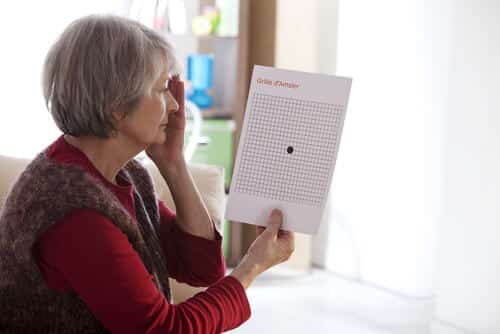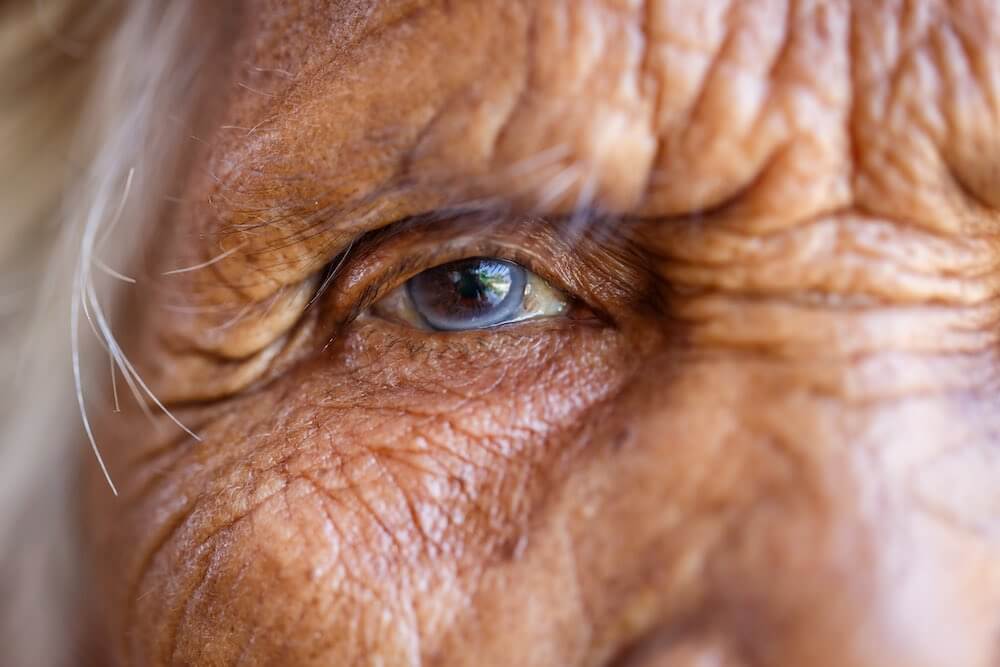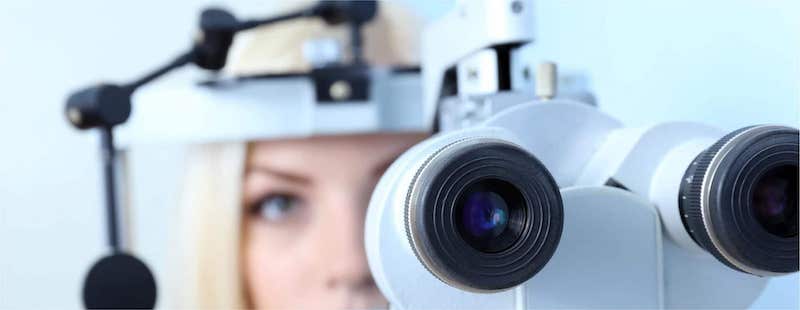If you’ve been diagnosed with age-related macular degeneration, you’re not alone. In the UK, over 600,000 people are affected with the condition and is one of the leading causes of severe vision loss in people over 60.
What Is Age-Related Macular Degeneration?

Macular degeneration occurs when the small central portion of the retina, known as the macula, deteriorates. The retina is the light-sensing nerve tissue at the back of the eye. It gets the name ‘age-related’ macular degeneration as the disease tends to develop as a person ages. This sight loss usually happens gradually over time, although it can sometimes be rapid. AMD doesn’t affect your peripheral vision (side vision), which means it will not cause complete blindness.
Macular Degeneration Symptoms

You may not notice any change in your vision during the early stages, especially if you have AMD in only one eye. However, as macular cells deteriorate, your ability to see clearly will change and your vision will become increasingly blurred, which means:
- Reading becomes difficult
- Colours appear less vibrant
- People’s faces are difficult to recognise
- Straight lines such as door frames and lampposts may appear distorted or bent
- Objects in front of you may change shape, size, colour or seem to move or disappear
- Dark spots, such as a smudge on glasses, could appear in the centre of your vision
- You may find bright light glaring and uncomfortable
- You may find it difficult to adapt from dark to light environments
- Words might disappear when you are reading
Types Of Age-Related Macular Degeneration

There are two main types of age-related macular degeneration:
Dry AMD
Most people who have macular degeneration have the dry form. Dry AMD causes a gradual deterioration of the macula, usually, over many years, as the retinal cells die off and are not regenerated. With dry macular degeneration, vision loss is usually gradual. People who develop dry macular degeneration must carefully and constantly monitor their central vision. If you notice any changes in your vision, you should tell your ophthalmologist right away, as the dry form can change into the more damaging form of macular degeneration called wet macular degeneration. Around 10 to 15% of people with dry AMD go on to develop wet AMD.
Wet AMD
Wet AMD occurs when abnormal blood vessels begin to grow underneath the retina and leak blood or fluid which leads to scarring of the macula. This can lead to blurring or distorting central vision. Vision loss from this form of macular degeneration is usually a lot faster and more noticeable than that from dry macular degeneration. The longer these abnormal vessels leak or grow, the more risk you have of losing more of your vision. The earlier the wet macular degeneration is diagnosed and treated, the better chance you have of preserving some of your vision.
Age-Related Macular Degeneration Treatment Options
Unfortunately, there isn’t a proven treatment for the dry form of AMD. However, studies suggest that antioxidant vitamins and zinc may reduce the impact of macular degeneration in some people by slowing its progression toward more advanced stages. There’s no definitive proof that this will be effective for everyone with dry AMD, but they do also offer a number of other important health benefits so there’s not harm in increasing your intake.

You may also wish to try:
- Magnifying lenses
- Large-print books
- Very bright reading lights
- Screen-reading software on your computer so you can read emails and documents, and browse the internet
How is wet AMD treated?
Fortunately for people with wet macular degeneration, there are treatment options available. These are aimed at sealing off the leaking blood vessels (with a laser and light sensitive drug) and preventing the blood vessels from growing back:
- Anti-VEGF medication – to prevent the growth of new blood vessels in the eye
- Laser surgery – to destroy abnormal blood vessels in the eye
Prevention
Unfortunately, you can’t prevent age-related macular degeneration from happening. However, you should have regular eye exams as this will help you find out if you are at risk, and you’ll also be able to detect it early if you do develop it – and early detection can sometimes delay loss of vision.
Not Sure Which Treatment Is Right For You?
We offer a number of vision correction treatments at our London Clinic.
We can give you a good idea of your suitability over the phone and schedule you for an initial consultation.

